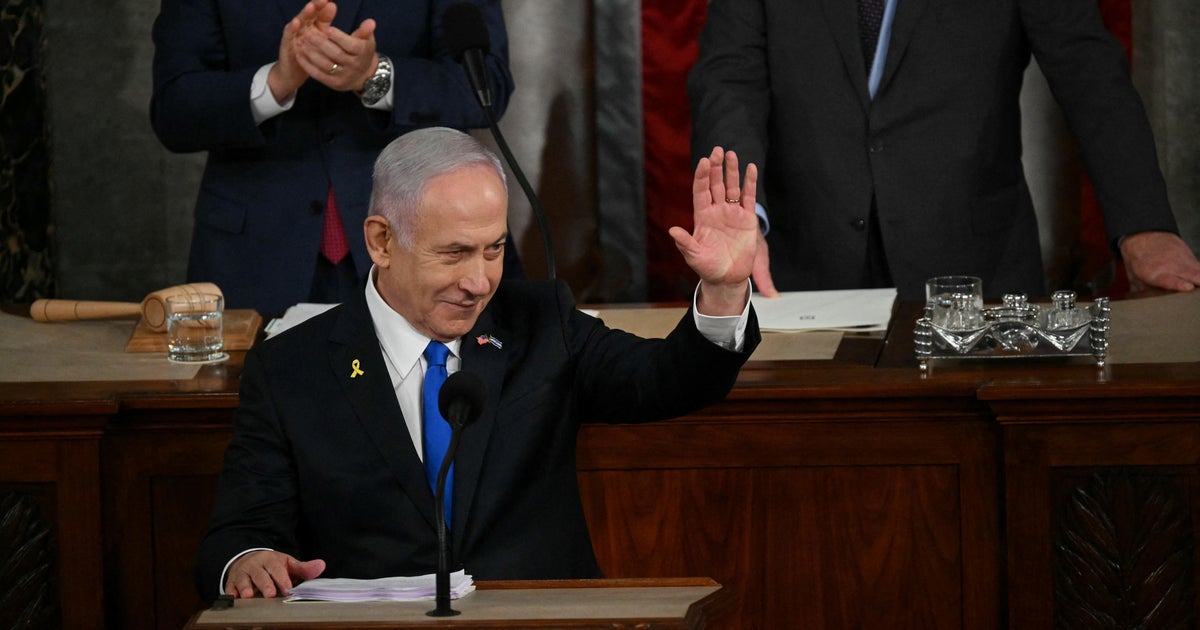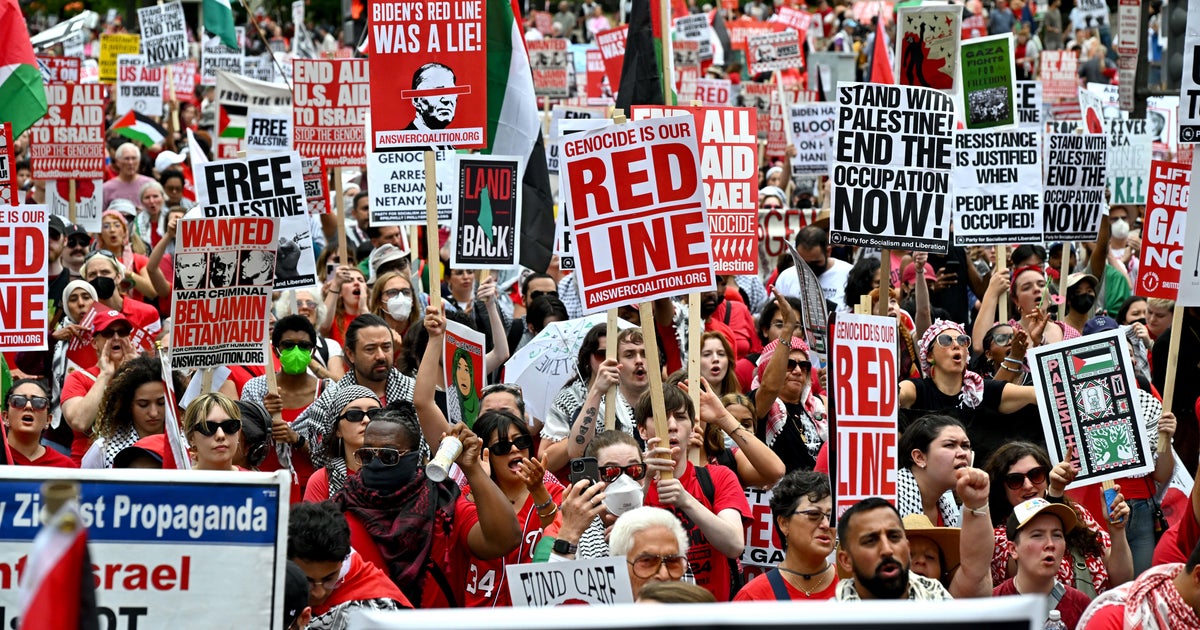Lawmaker on bank CEOs' pay: "It doesn't look good"
- CEOs of seven of the biggest U.S. banks testified before Congress as a group for the first time since 2009.
- Democratic members of the House Financial Services Committee challenged the executives about issues including their massive pay and the financial giants' record of misconduct.
- The bank chiefs said their institutions are safer and more resilient than before the financial crisis.
- Despite the renewed focus on big banks, analysts say Congress is unlikely to tighten financial industry rules in the near term.
Making their first appearance before Congress since the financial crisis a decade ago, the CEOs of America's biggest banks told lawmakers their financial institutions are now smaller and are taking on less risk.
With Democrats in control of the U.S. House, banks and the men that lead them are facing renewed scrutiny over their practices and record profits.
Since the massive taxpayer-funded bank bailout in 2009, large U.S. banks have raked in $780 billion in profits -- nearly five times the amount they paid in fines. "[N]o one has made out better than the CEOs," Maxine Waters, D.-California, chair of the U.S. House Financial Services Committee, said in starting the hearing.
The financial giants represented at the gathering include seven of eight global "systemically important" banks, which paid a total of nearly $164 billion in fines during the last 10 years, according to a committee memorandum. Because their profits greatly exceed the penalties, Waters questioned whether banks view regulatory fines as simply the cost of doing business.
New York Democrat Alexandria Ocasio-Cortez pointed to a litany of what she described as bank misdeeds, from JPMorgan's failure to oversee its trading practices in 2013 to last month's $25 million fine against Citibank for violating the Fair Housing Act. "I have concerns about how much things have changed," she told the bankers.
Ocasio-Cortez also questioned the fairness of a legal system that fines banks for legal violations but imprisons low-income people for relatively minor offenses. Mentioning that Riker's Island is part of her congressional district, the lawmaker said: "I represent kids who go to jail for jumping a turnstile because they couldn't afford a metro card."
JPMorgan Chase CEO Jamie Dimon responded by saying he did not support prison for turnstile jumping. He drew praise from the freshman lawmaker for JPMorgan's decision last month to halt financing of private operators of prisons and detention centers.
The last time the panel convened such a hearing, the country was in recession and the CEOs had to explain taking billions in taxpayer bailouts. Banks have since by-and-large repaid taxpayers and bounced back to record profits.
"It doesn't look good"
Citigroup CEO Michael Corbat's pay of $24 million in 2018 was 486 times larger than the median salary of Citgroup employees, the biggest gap among the banks, noted New York Democrat Nydia Velazquez. "Do you think that's fair?" she asked. "It doesn't look good."
In their testimony, the bank chiefs said their institutions are safer. "We are safer, sounder and more resilient than we were before the financial crisis," declared James Gorman, chief executive of Morgan Stanley.
Corbat said his bank has "downsized considerably," eliminating 70 business lines, while Dimon said JPMorgan Chase has cut 17 business lines. Bank of America has also scaled back, said its CEO, Brian Moynihan. Questioned by Waters, all three men said the moves made managing business easier.
Big U.S. banks have generally grown in the last decade, with JPMorgan handling $2.6 trillion in assets in 2017, up from $1.5 trillion at the end of 2007, the committee memo noted.
Dimon in the hot seat -- on guns
Waters urged the CEOs not to let Dimon speak for them, a reference to a strategy, reportedly making the rounds in jest, of letting the longest-serving CEO of the group tackle the tougher questions. Dimon did, in fact, find himself in the hot seat during Wednesday's hearing, but for another issue: gun violence.
While praising Citibank and Bank of America for limiting their business with the gun industry in response to mass shootings, New York Democrat Carolyn Maloney called out JPMorgan for not doing the same. Dimon defended his bank's loans to makers of weapons for police and the U.S. military, but said he would be willing to consider adopting a policy of responsible lending to entities such as gunmakers and sellers.
By contrast, BofA's Moynihan drew criticism from Rep. Sean Duffy for his bank's position on guns, which the Wisconsin Republican said "takes away the rights of law-abiding citizens of where I live." Moynihan dismissed Duffy's assertion that his bank violates the second amendment with its decision to stop lending to makers of assault-style weapons used for non-military purposes. The bank cited 151 employees as being affected by mass shootings in its 2018 policy.
Support for DACA
Other questions had a majority of the banks stating they hired DACA recipients, a reference to individuals brought unlawfully to the U.S. as children but who are legally permitted to remain under the "Deferred Action for Childhood Arrivals" policy.
"We completely support DACA staying here," Dimon said. "Let's keep them here," added Moynihan, who said that BofA helps provide legal assistance to DACA employees looking to obtain and renew work permits.
In prepared testimony, the bank leaders also highlighted their work to hire more women and minorities, while praising regulations aimed at ensuring the soundness of financial institutions. Morgan Stanley's Gorman touted the Volcker Rule, saying its restrictions on trading had deterred his firm from taking on too much risk.
The committee's ranking member, North Carolina Republican Patrick McHenry, blasted the event as "a hearing in search of a headline." Among other concerns, he said the time would be better spent "questioning banking regulators on whether they are ready for a hard Brexit on Friday."
Other CEOs appearing before the panel included David Solomon of Goldman Sachs, Charles Scharf of BNY Mellon and Ronald O'Hanley of State Street Corp. No CEO from Wells Fargo attended after former chief Tim Sloan resigned last month after a string of scandals.
Forget tighter oversight
Despite the spotlight on the bank executives, Wall Street analysts say concrete legislative or policy action to tighten oversight of the financial industry is unlikely in the near term.
"The hearing elevates headline risk for firms and will further shape the tone for the financial sector leading up to the 2020 election, but the press attention likely outweighs any longer term consequences," analysts with Raymond James said in a note.



